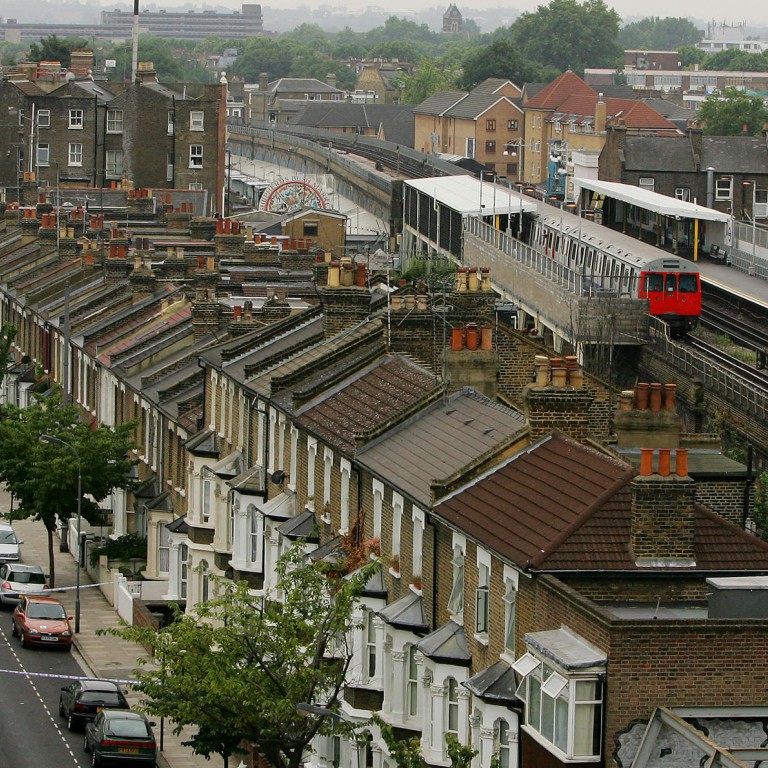
British annual home price growth slows further to 2-year low
British housing costs drop surprise 0.2 per cent in June, maintaining a gradual downward trend that leaves the yearly increase at 3.3 per cent
British house prices unexpectedly fell last month, taking the annual rate of price increases to its lowest in two years, mortgage lender Nationwide said.
It said house prices dropped 0.2 per cent, against economists' forecasts of a 0.2 per cent increase. This pushed the annual rate of growth to a two-year low of 3.3 per cent from 4.6 per cent in May.
"This maintains the gradual downward trend that has been in evidence since mid-2014," Nationwide economist Robert Gardner said. "House price growth continues to outpace earnings, but the gap is closing, helped by a pickup in annual wage growth."
A year ago, Nationwide reported annual house price inflation of 11.8 per cent, but tighter lending rules from regulators have slowed the pace of price rises.
Many economists think this will prove temporary, however, as the number of new homes being built is insufficient to keep up with demand, and wages are starting to grow faster.
"House prices are likely to be firmer over the second half of the year amid improving activity. A current shortage of properties on the market is also likely to provide support to house prices," said Howard Archer, a chief economist at IHS Global Insight.
Archer said he expected house prices to rise 6 per cent this year, and 5 per cent next year.
Rival mortgage lender Halifax reported last month house prices in the three months to May were 8.6 per cent higher than a year earlier.
Nationwide said annual house price growth in the second quarter was fastest in Northern Ireland, at 8 per cent. But prices there are still 45 per cent below their 2007 peak, reflecting trends in the Irish republic rather than those in the rest of Britain, where prices are about 10 per cent above pre-crisis levels.
House prices in London have risen by 7.3 per cent over the past year, while the biggest fall was in Scotland, where they have dropped by 1 per cent
Meanwhile, construction activity grew last month at its fastest rate in four months, and confidence in the sector surged to an 11-year high, as growth resumed after a lull in the run-up to May's national election.
The monthly Markit/CIPS purchasing managers' index rose to 58.1 from 55.9 in May, its biggest increase in a year and exceeding all forecasts in an earlier poll.
"The extent of the recent rise in construction optimism is partly down to relief that pre-election uncertainty has now passed, but it also suggests that firms are infused with confidence that underlying demand will continue to recover," said Tim Moore, an economist at financial data company Markit.
Growth was fastest in the house-building sector, but civil engineering projects and commercial work were catching up quickly.
New orders flowed in at the strongest rate since October last year, while there was increasing evidence of skills shortages, rising labour costs and lengthier delivery times for building supplies.

